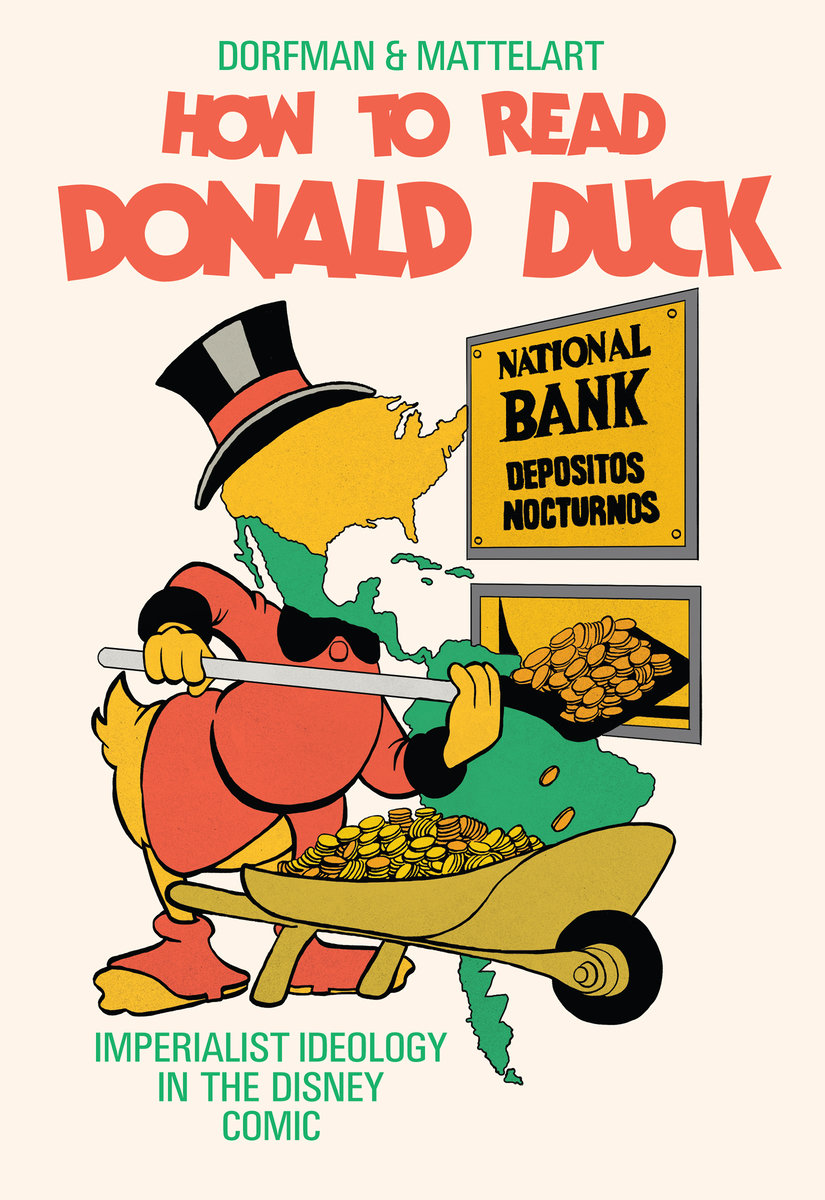A literary grandmaster. -Time
First published in 1971 in Chile, where the entire third edition was dumped into the ocean by the Chilean Navy and bonfires were held to destroy earlier editions, How to Read Donald Duck reveals the imperialist, capitalist ideology at work in our most beloved cartoons.
Focusing on the hapless mice and ducks of Disney-curiously parentless, marginalized, always short of cash-Ariel Dorfman and Armand Mattelart dissect the narratives of dependency and social aspiration that define the Disney corpus. Disney recognized the challenge and, when the book was translated and imported into the United States in 1975, managed to have all 4,000 copies impounded. Ultimately, 1,500 copies of the book were allowed into the country, the rest of the shipment was blocked, and until now no American publisher has re-released the book, which has sold over 1 million copies worldwide. (The original English language edition is now a collector´s item, selling for up to $500 on Amazon.)
A devastating indictment of a media giant, a document of twentieth-century political upheaval, and a reminder of the dark potential of pop culture, How to Read Donald Duck was published in seventeen languages-and is now available once again, together with a new introduction by Ariel Dorfman.


